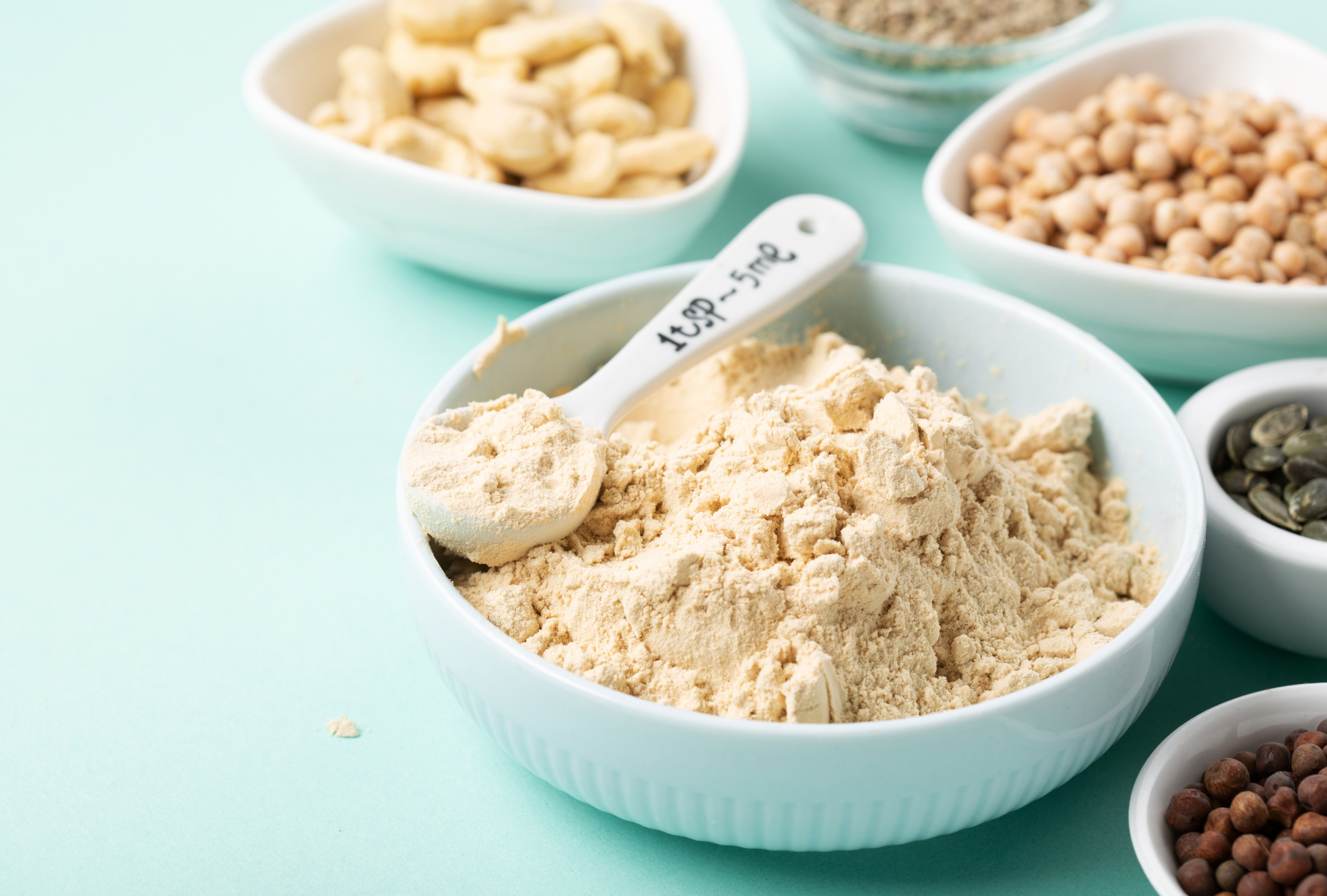
Ranking: Germany’s most sustainable medium-sized companies 2023
24. August 2023Your contact persons
t +49 (0) 89 1250 1590
presse@munich-strategy.com
Kai-Markus
Hock
Matthias
Riemann

Kai-Markus Hock

Matthias Riemann

WHITE PAPER
10 / 2023
White paper: Plant-based alternatives on the rise – What are the opportunities for machinery manufacturers?

For the white paper ‘Plant-based alternatives on the rise’, Munich Strategy examined the opportunities that the production of plant-based alternative products offers to machinery manufacturers. For the analysis, we engaged with numerous CEOs and decision-makers in the food industry, as well as in the food and packaging machinery sector.
Emphasis is placed on the manufacturing processes of plant-based milk and meat alternatives, which have achieved significant volumes and a high level of automation. The white paper’s conclusion is that existing production solutions fall short of meeting the demands of the plant-based industry. The machinery manufacturing sector is currently not fully realizing its potential.
Alternative Products: Further growth is expected
The research indicates that the substitution of animal-based products with plant-based alternatives continues to progress. Between 2020 and 2022, the retail sales of plant-based alternatives across all categories increased by 42 percent. Milk and meat alternatives dominate with a combined share of over 60 percent in 2022. Plant-based milk alternatives now hold a market share of 13 percent, while meat alternatives have reached only a single-digit percentage, partially substituting the meat production that has been declining since 2019. Munich Strategy anticipates further growth in plant-based alternatives and cites five indicators for this growth in the report.
Milk alternatives: differentiation primarily in pre-processes
With milk alternatives, we identify the most significant potential for machinery manufacturers in the pre-processing stages, such as “raw material processing,” including the preparation and grinding of pulses and cereals, and “concentration and fractionation,” such as the decanting of soy milk concentrate or oat base after mashing and saccharification. The consultants cite the substantial market volume and the high technological differentiation in these sub-processes as reasons. Furthermore, the susceptibility to quality defects offers an opportunity for machinery manufacturers. Milk alternative emulsions are often weak due to the absence of a natural binder and formulations are often clean label and thus do not contain any further stabilizers. Machinery manufacturers could offer a solution to ensure consistent product quality and prevent the sedimentation of e.g. almond paste on the carton bottom even during extended storage.
Meat alternatives: protein enrichment and extrusion offer the greatest potential
In the field of meat alternatives, we see two sub-processes as promising for machinery manufacturers. In the pre-processing stage of “concentration and fractionation,” protein enrichment occurs, for example, by refining flour into raw protein through sieving and air classification or extraction. In the production process of “blending and texturing,” for instance, a powder mixture of protein concentrate and isolate is created, and dry or wet texturates are extruded. Simplifying and integrating sub-process steps into a comprehensive solution can also be a differentiating factor for machinery manufacturers in the production of meat alternatives, enabling their customers to produce smaller batch sizes cost-effectively, thus facilitating innovation.
Production solutions must meet five success factors
Munich Strategy concludes that existing production solutions fall short of meeting the requirements to produce plant-based alternatives and that the machinery manufacturing sector is not fully leveraging the potential of the attractive plant-based market.
“Many machinery manufacturing companies tend to react with short-term and opportunistic approaches to developments in the plant-based field,” explains Kai-Markus Hock, an expert in plant substitutes and new business areas at Munich Strategy. “To succeed in the plant-based alternative market, the entire business model must be reviewed for interfaces, and a clear positioning and distinct competitive ad-vantages must be established.” This can for example be achieved through focus, diversification, globalization, or digitalization.
The consultants also identify five success factors that production solutions must fulfil to convince manufacturers of plant-based alternatives.
Content of the white paper

-
-
Development of alternative products in the German retail sector
-
Sales in Europe 2022
-
Evolution of manufacturing and market importance
-
Sub-processes in production using the example of soy or oat milk
-
Sub-processes in production using the example of burgers
-
Conclusion: potential of individual process steps
-
Definition of the playing field and sources of competitive advantage
-
Five success factors for production solutions in the plant-based field
-
Examples for strategic thrusts
-
Entrepreneurial challenges to adapt your business model to the requirements of plant-based alternatives
-
Extent: 12 pages
-
KONTAKT
Wissen zusammenbringen.

If you would like to understand what “Plant-Based” means for your business and how you, as a machinery manufacturer, can benefit from these developments, we are your strategic partner for all related questions.
If you wish to order our white paper (protection fee: EUR 149.00 plus VAT), please send an email with your billing address to presse@munich-strategy.com.
Munich Strategy is an international management consultancy specializing in machinery manufacturing. We develop growth and internationalization strategies for leading machinery and equipment manufacturers, support Mergers & Acquisitions, and shape transformation processes.
Contact
Munich Strategy GmbH & Co. KG
Türkenstraße 5
80333 München
t +49 – 89 – 1250 1590
presse@munich-strategy.com
You may also find interesting
“Gefragt sind Anlagen, die wenig Platz und Energie brauchen”. Interview (in German) with our industry expert Matthias Riemann in Germany’s leading business newspaper WirtschaftsWoche
Interview
You may also find interesting



